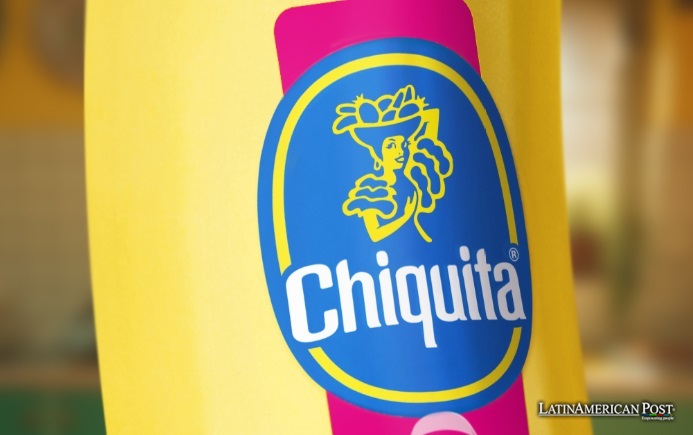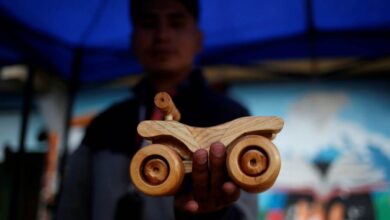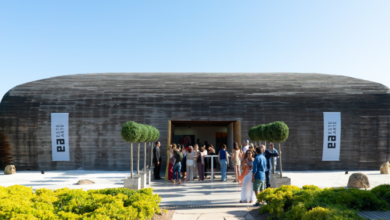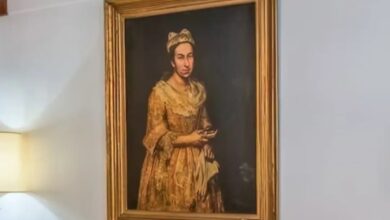Latin American Art Deserves Much Better Than Chiquita’s Sponsorship

Art Basel Miami Beach is a key event celebrating Latin American art. However, a big problem surfaces with Chiquita, a brand known for regional exploitation, sponsoring the fair. The art world faces a difficult task. People wonder how art lovers align this partnership with their values. It’s puzzling for many.
The Shadow of Chiquita’s Controversial Legacy
Chiquita’s bright yellow branding looks cheerful. However, its history is quite the opposite. The brand used to be called United Fruit Company. This company has a dark past. Its legacy includes labor abuses in Latin America. Environmental harm was familiar, too. Political interference occurred frequently. The brand’s history is troubling. From the 1928 Banana Massacre in Colombia to its role in Guatemala’s 1954 coup against President Jacobo Árbenz, Chiquita’s influence has left lasting scars on the region.
As recently as this year, Chiquita was ordered to pay $38.3 million to families of victims killed by paramilitary groups it financed in Colombia. Given this history, the company’s partnership with Art Basel Miami Beach, a fair celebrated for its strong Latin American presence, feels profoundly tone-deaf. The juxtaposition of a brand with “blood on its hands” promoting its image at an event showcasing Latin American creativity is a glaring disconnect.
A Loaded Symbol
Bananas have been a symbol for criticizing colonialism, capitalism, and exploitation in Latin American art for a long time. Chiquita’s Art Basel Miami Beach marketing effort uses bananas with stickers and Instagram contests. This action weakens the substantial meaning of bananas in art. One ad even references Maurizio Cattelan’s duct-taped banana Comedian—a multimillion-dollar piece often criticized for its superficial engagement with deeper issues.
Instead of spotlighting a European artist’s tongue-in-cheek commentary, Art Basel Miami Beach should turn to Latin American artists who have used banana imagery to address Chiquita’s dark legacy. These artists, like Andrea Chung, whose May Day series erases plantation workers from vintage photos to reclaim their agency, or Luis Camnitzer, who humorously linked the U.S. Republican Party to ‘banana republic’ politics, offer profound critiques of power structures and corporate exploitation. Their resilience in the face of such a challenging history is truly inspiring.
The fair, situated in Miami—a city often called the “capital of Latin America”—is uniquely positioned to honor these voices. Miami’s rich history as a hub for Latin American art and culture deserves better than corporate art-washing.
A Missed Opportunity
Art Basel Miami Beach has consistently celebrated its ties to Latin American art. Two-thirds of its galleries hail from the Americas, and the event has become a vital platform for showcasing Latinx and Latin American talent. From the Pérez Art Museum Miami to local institutions like the Museum of Contemporary Art North Miami, the city embraces its identity as a cultural bridge between the U.S. and Latin America.
Chiquita’s sponsorship is out of place in this setting. The company promises “light-spirited fun” at the fair. However, its past actions of exploitation and violence harm the communities the fair represents. This conflict raises questions about the ethics of business partnerships in art. People wonder if money should matter more than morals. Money versus morals.
Protest and Preserve: Reclaiming the Narrative
Chiquita’s presence at Art Basel Miami Beach is not just a call to action for artists and the broader art community, it’s also a call to action for you, the audience. You have the power to counter the corporate narrative and reclaim the spotlight for Latin American voices. Here’s how you can do it:
- Support Latinx and Latin American Artists: Focus on the galleries and artists whose work challenges the narratives Chiquita seeks to sanitize. Artists like Karlo Andrei Ibarra and Jean-François Boclé have used bananas to critique colonialism and capitalism, offering a powerful counterpoint to Chiquita’s branding.
- Choose Fair Trade: If Chiquita’s bananas inspire you but can’t stomach the company’s history, opt for fair trade alternatives. Support ethical practices that prioritize the well-being of workers and the environment.
- Creative Protest: Take inspiration from artists like Tonico Lemos Auad, who uses banana peels as a canvas for messages of resistance. Attendees can carve their messages into bananas or create installations that confront Chiquita’s troubling legacy.
Art Basel Miami Beach must respect the communities and cultures it showcases. The event should lift the voices of artists who question exploitation and inequality. This step might turn Chiquita’s participation into a space for conversation and criticism.
A Call for Ethical Partnerships in the Arts
The art world needs to deal with the ethics of corporate sponsorships, especially when sponsors have harmful pasts. Chiquita’s deal with Art Basel Miami Beach clearly shows the power differences in cultural places. Money support matters, but it should not forget the values and stories art wants to celebrate. This is a crucial moment for the art world to reevaluate its partnerships and prioritize ethical values. Change is possible, and it’s up to us to make it happen.
The next Art Basel Miami Beach is approaching soon. Visitors and event planners now have a great chance to think about the links between art, business, and duty. It’s up to us to support fair partnerships and shine a light on voices questioning long-standing issues. By doing so, we can ensure that events like Art Basel remain centered on honoring creativity and culture, and not on corporate interests.
Also Read: Chiquita Found Liable for Funding Colombian Paramilitary Group
Art has excellent strength. It really can confront hard truths and spark change. At Art Basel Miami Beach, this power could turn Chiquita’s sponsorship into a starting point for talks about history and ethics. It is essential to discuss how businesses shape cultural stories. By centering Latin American voices and resisting corporate whitewashing, the fair can honor its rich heritage and pave the way for a more just and inclusive art world.





